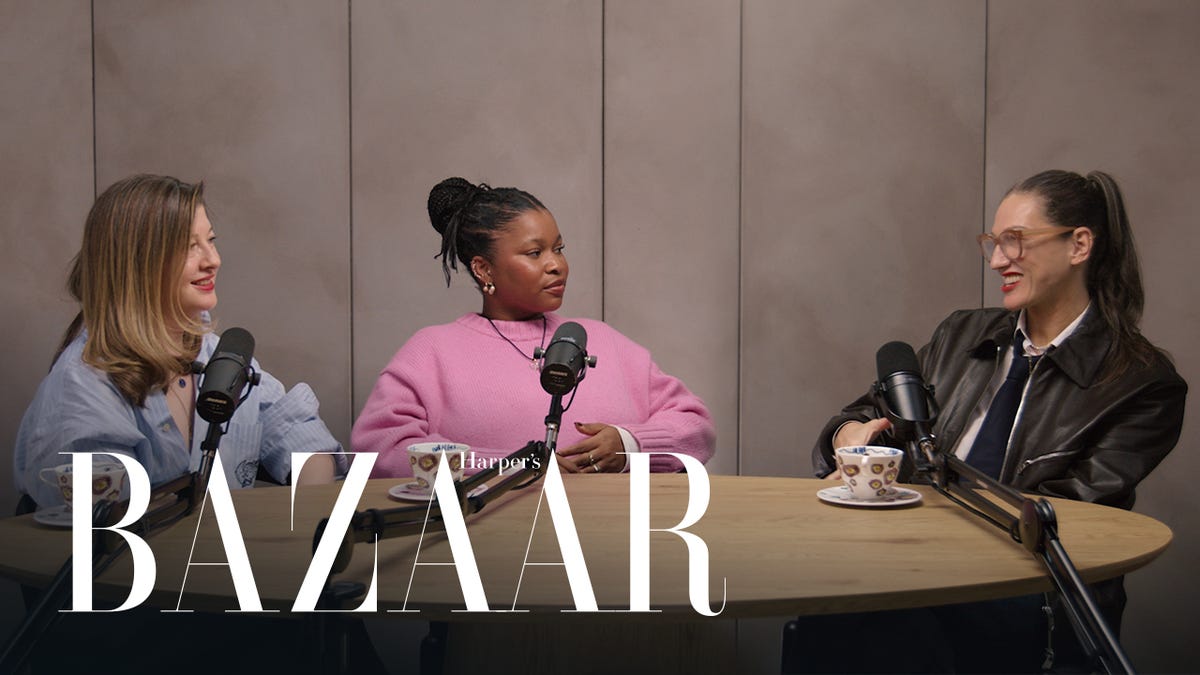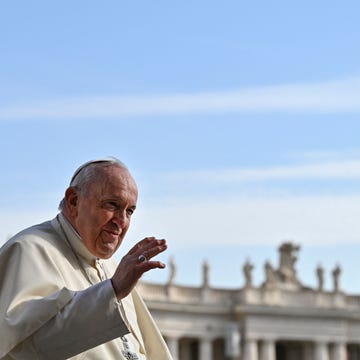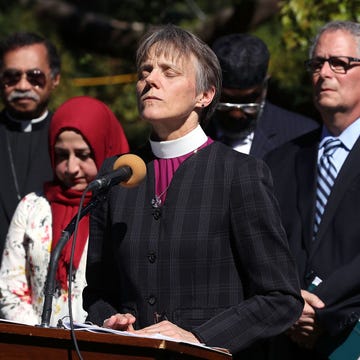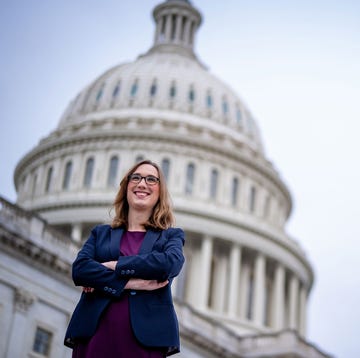Democrat Tim Walz and Republican J.D. Vance went head-to-head for the first time on Tuesday evening, at their much-awaited vice presidential debate—and the general consensus among viewers of both parties is that it was unexpectedly … pleasant?
Though the candidates, as expected, clashed on major issues—in particular abortion access, immigration, and the climate crisis—they did not raise their voices or resort to petty criticism. In fact, they constantly voiced their respect and appreciation for one another. Dems were surprised to see that Vance is a smart and concise public speaker (though that does not change the fact that his policies lean anti-woman and anti-immigrant), and while Walz is not the strongest debater, he made it clear that, unlike Republican presidential nominee Donald Trump, Democratic nominee Kamala Harris is an open-minded leader for the hardworking middle class and the melting pot that is the United States.
Ahead, all the biggest highlights from the VP debate.
They clashed on abortion.
Walz knew he had the upper hand in the abortion discussion, and he did not disappoint when it came to voicing his support of women making decisions about their own bodies.
The Minnesota governor used personal stories to make his case, pointing to Amanda Zurawski, who was denied an abortion in Texas despite serious health risks, as well as to Kentucky woman Hadley Duvall, who became pregnant when she was raped by her stepfather. He also brought up the tragic story of Amber Thurman, a woman from Georgia who was forced to drive to North Carolina to obtain abortion pills, and died shortly after of an infection, as she was unable to get the necessary care in her own conservative state.
Walz also pointed to his and his wife’s own journey with infertility, noting that if it were not for reproductive health care, he would not be a dad.
Vance, meanwhile, continued to insist that Trump had it right when he engineered the overturning of Roe v. Wade, and praised the Republican former president’s decision to leave abortion access laws up to each state. “The proper way to handle this, as messy as democracy sometimes is, is to let voters make these decisions,” Vance said. “Let the individual states make their abortion policy. And I think that’s what makes the most sense in a very big, a very diverse—and let’s be honest—sometimes, a very, very messy and divided country.”
Walz strongly disagreed. “That’s not how this works. This is basic human rights,” he said. “We have seen maternal mortality skyrocket in Texas, outpacing many other countries in the world.”
They disagreed on immigration.
Vance did not repeat his and Trump’s conspiratorial claims that immigrants in the U.S. are “eating the cats” and “eating the dogs,” but he did say that migrants are coming into the country and stealing American jobs. And he claimed President Joe Biden and current VP Harris are responsible for letting in waves of criminals from outside.
Walz vehemently denied Vance’s claims and stood behind his running mate. “Kamala Harris was the attorney general of the largest border state, in California. She’s the only person in this race who prosecuted transnational gangs for human trafficking and drug interventions,” he said.
Walz then raised the issue of the bipartisan border bill, endorsed by the National Border Patrol Council, that Trump shut down earlier this year. “As soon as that was getting ready to pass and actually tackle this, Trump said ‘no,’ told [Republican legislators] to vote against it, because it gives them a campaign issue,” Walz said.
The moderators brought up Trump’s comments that if reelected, he will carry out “the largest deportation in the history of our country.” When they asked Vance if that meant the Trump administration would separate U.S.-born children from their immigrant parents, the Ohio senator refused to give a straight answer.
In one heated moment, when Vance tried to speak over his time limit, and over the moderators, to demonize the Dems’ allegedly lax stance on immigration, the moderators muted his microphone, as well as Walz’s.
Vance defended Donald.
When the moderators brought up the fact that Trump has refused to accept and admit that he did, in fact, lose the 2020 presidential election, Vance maintained his unwavering support for his running mate. When Walz asked him, “Did Donald Trump lose the election?” Vance refused to give a yes-or-no response, instead offering a vague reply about wanting to focus on the future and changing the subject.
Walz said that was a “damning non-answer.”
Vance also declined to comment on Trump’s efforts to overturn the 2020 election, and on the then-president’s role in the January 6, 2021 attack on the U.S. Capitol.
“A president’s words matter,” Walz said, referring to how Trump pushed his followers to help him overturn the election by storming the Capitol.
Vance replied, “It’s really rich for Democratic leaders to say that Donald Trump is a unique threat to democracy when he peacefully gave over power on January, the 20th, as we have done for 250 years in this country.”
They kept complimenting one another.
There’s no doubt that despite their moral differences, Walz and Vance had a largely civil debate. At times, they even seemed friendly—something that shouldn’t have been as surprising as it was.
“I’ve enjoyed tonight’s debate, and I think there was a lot of commonality here,” Walz said at one point. “Me too, man,” Vance replied.
They also agreed on several topics, including the need to end school shootings, lower housing prices, and revive the economy.
The opposing politicians ended the debate with a handshake and even introduced their wives to each other. The four chatted for several minutes before Walz and Vance walked over to thank the moderators, CBS’s Norah O’Donnell and Margaret Brennan.














